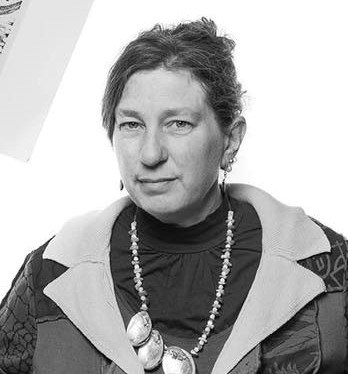Last week in Part 1, University of Athabasca tutor Dr. Leigh Brownhill identified what systemic racism is. In Part 2, she will cover how to combat it, both in ourselves and in the larger society.
ATHABASCA – One of the ways to let go of racist behaviours is to accept they exist to begin with, Dr. Brownhill says.
Maybe you had a great- great- great- grandfather who owned slaves or a family member who claimed the Holocaust was a hoax. Having not participated in those actions ourselves, you are not responsible, but we do need to acknowledge the damage they did she said.
“We have to let go of the past and be able to critique and not feel like it's a denial of our own identity. Our identity can be strengthened and made into a better version of ourselves when we embrace difference. This is going to the idea that we're not obliged to carry the mistakes (of our ancestors). It doesn't mean in the blind allegiance to tradition that we have to repeat what’s been done in the past,” Brownhill said.
We also need to immediately identify and stamp out racism when we see it in the moment, she said pointing to US president Donald Trump’s comparing people of colour to vermin who will “pour into and infest our country” in a June 19, 2018 tweet.
“That's straight out of the Nazi playbook, that is straight out of Rwanda in 1994. That is very, very dangerous, and not only dangerous, but it could constitute a crime against humanity because they are enabling other people,” Brownhill said.
A Pew Research Center poll released in April 2019 showed 58 per cent of Americans felt race relations were bad, 56 per cent felt Trump made race relations worse and 65 per cent said they agreed more people felt emboldened to express racist views since he was elected.
“I think we're not taking it seriously enough in terms of how non state actors get emboldened to carry out policies that are just purely destructive for the benefit of others.”
Brownhill added that with groups like NASCAR and the NFL choosing which side of the debate to stand on, it will force some of their fans take a look at systemic racism.
“As more and more people have their eyes open to the reality, it will be easier for others to perhaps understand what's going on because not only the ‘crazy radicals’ or the ‘hippies’ talking about this, but now it's NASCAR, it's the NFL, it's the Premier League. And that is going to start getting into people's heads,” Brownhill said.
What is needed is a complete overhaul of barriers in institutions and a redistribution of wealth. Once no one has to scramble to survive, crime and racism would go down too.
“It's not only to make things better for other people, it's to make things better for ourselves to make the entire society better. Crime would go down; all sorts of things would go down if people if people had access to the resources and life chances and needs that every human being have,” she said.
“It would solve all of humanity's problems in the sense of – instead of going piecemeal trying to break down barriers in endless numbers of institution – have a complete redistribution of wealth such that every institution has a new set of resources to work with, and that there's not a competition. We wouldn't have crime and we wouldn't have racism where we feel like we have to blame someone else for our own dispossession.”
And for people who say racism cannot be stopped because it is too big to handle, Brownhill points to the pandemic.
“Look at what happened in the world in the last three months. Everything has changed. All institutions are going through tremendous change overnight and if we think that things are just too big to change ... it is actually very possible to change everything overnight,” she said.
Brownhill is heartened by the outpouring of empathy for George Floyd from people of all walks of life taking part in the protests demanding change.
“It's unprecedented. The numbers, the diversity, not only in terms of ethnicity but age and ability, disability, and everything. And not only the diversity and the number, but the longevity,” she said.
“It's a very encouraging indication to me that we're not going back, we're not just going to forget about this one and the next news cycle or the next tragedy will take our attention away to something else.”
A big step towards ending systemic racism is empathy, Brownhill said.
“We need to learn empathy for other people. I think that that's part of what really struck people with the video of George Floyd. You could not watch that and not be absolutely heartbroken.”
Heather Stocking, TownandCountryToday.com
Follow me on Twitter @HLSox

